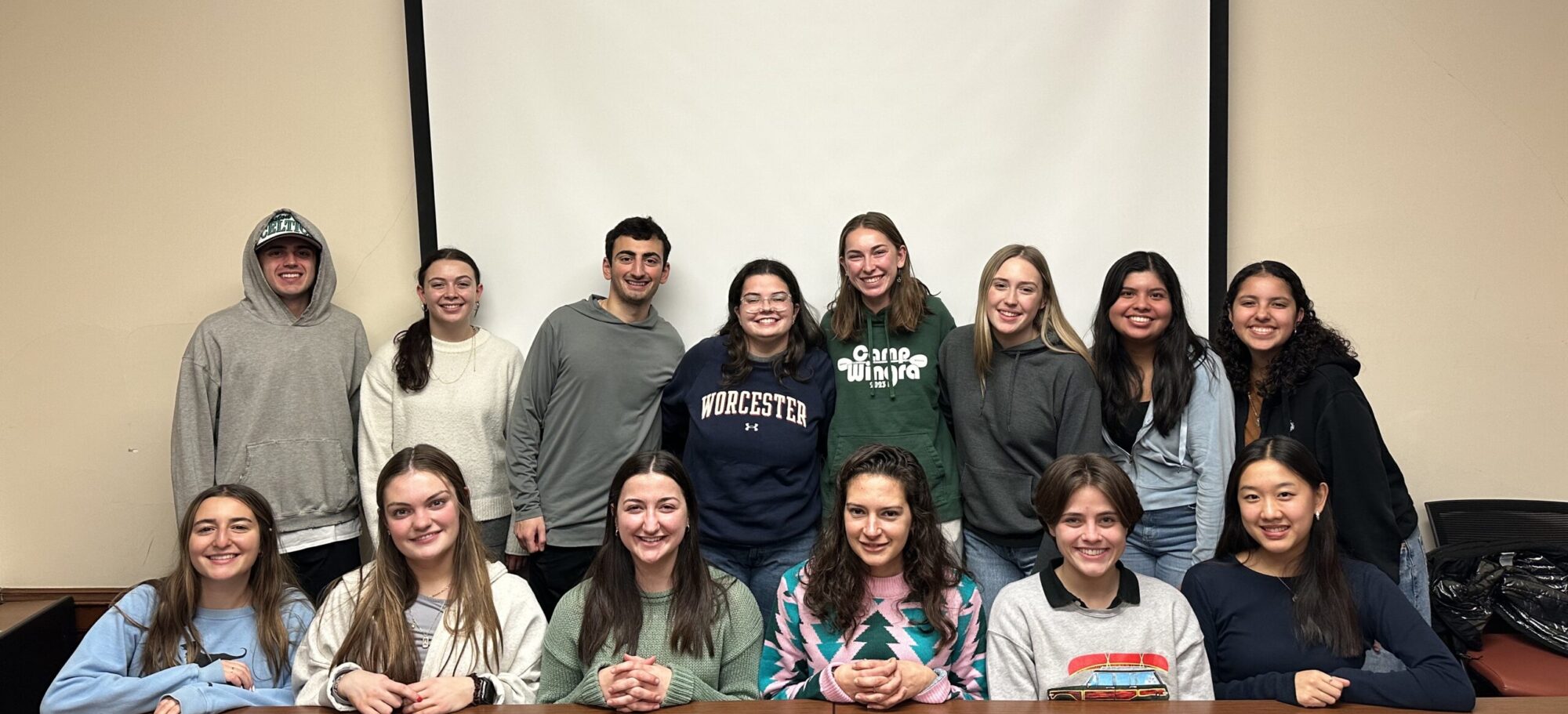Earlier this week, I had the opportunity to address an entire room full of the people who help make Community-Based Learning a viable program for students at Holy Cross. I wrote this speech, which I’ve included below, not only to thank our community partners for the work they do, but to remind them of how this work contributes to our academic and personal growth.
If my four years here have taught me anything, it’s that college isn’t just about what you learn. It’s about the person you become through your learning.
In that respect, CBL has been an invaluable aspect of my experience here at Holy Cross, contributing to both my academic and personal growth. Before I arrived at Holy Cross, social justice and community service were things I’d never really considered.
But now, as a graduating senior, social justice and community service have become integral to my identity as a student and as a citizen. Going out into the community and experiencing both the frustrations and the successes of treating social problems awakened in me a social consciousness developed otherwise.
Being able to forge a relationship with the Worcester community has shaped my college experience into one I’m proud of and excited by. Many Holy Cross students neglect to explore Worcester and claim it as their community. We tend to get wrapped up in the monotony of campus culture so that even when we do engage in community service, we do so with a level of distance.
Our objective is not to get to know the community and make its problems our own; our objective is to become more “well-rounded” by adding yet another item to our collection of commitments and responsibilities. We approach service with romanticized hopes of intimately touching the lives of those we (often condescendingly) deem to be “less-fortunate” than we are.
I’ll be the first to admit I initially became involved in service at Holy Cross for that very reason. It wasn’t until I unwittingly enrolled in a CBL course that the paradigm of service shifted for me. When I found out my Introduction to Women’s and Gender Studies course would require me to go out into Worcester and try to determine how our course objectives played out in the real world, I was skeptical.
But as the semester progressed, I came to see the pedagogical value of observing theory in practice. For me, engaging in the community didn’t just illustrate the social problems and structural inequalities discussed in our course readings; engaging in the community broke down the “us/them” boundary many of my peers carefully maintain between ourselves and the Worcester community. Immersing myself in the community made theoretical problems and inequalities personal imperatives.
Through the relationship I’ve grown with the Worcester community, I’ve come to see Worcester not as a place I inhabit between vacations but as my home. I’ve come to see broader social problems as personal calls to action. I’ve come to see that theory and practice are never mutually exclusive things.
In the same way, I’ve learned that academic and personal growth often develop in positive feedback loops. As my academic objectives pushed me into the community, the community’s willingness not only to receive me but to teach me changed my personal perspective on social justice and community engagement. This new perspective then inspired a sense of urgency in my academic pursuits that continues to motivate me in questioning the ways inequality is constructed in our society.
So, if I can speak for my fellow Community-Based Learning students and Interns, on behalf of all of us, I’d like to thank the community partners who warmly and generously open up their doors for us. Thank you for taking the time to engage with us in such deep and inspiring ways. The impact you have on our lives stretches far beyond the four-year window of our time here at Holy Cross.
Thank you.
–Rachel E. Greenberg, ’15


